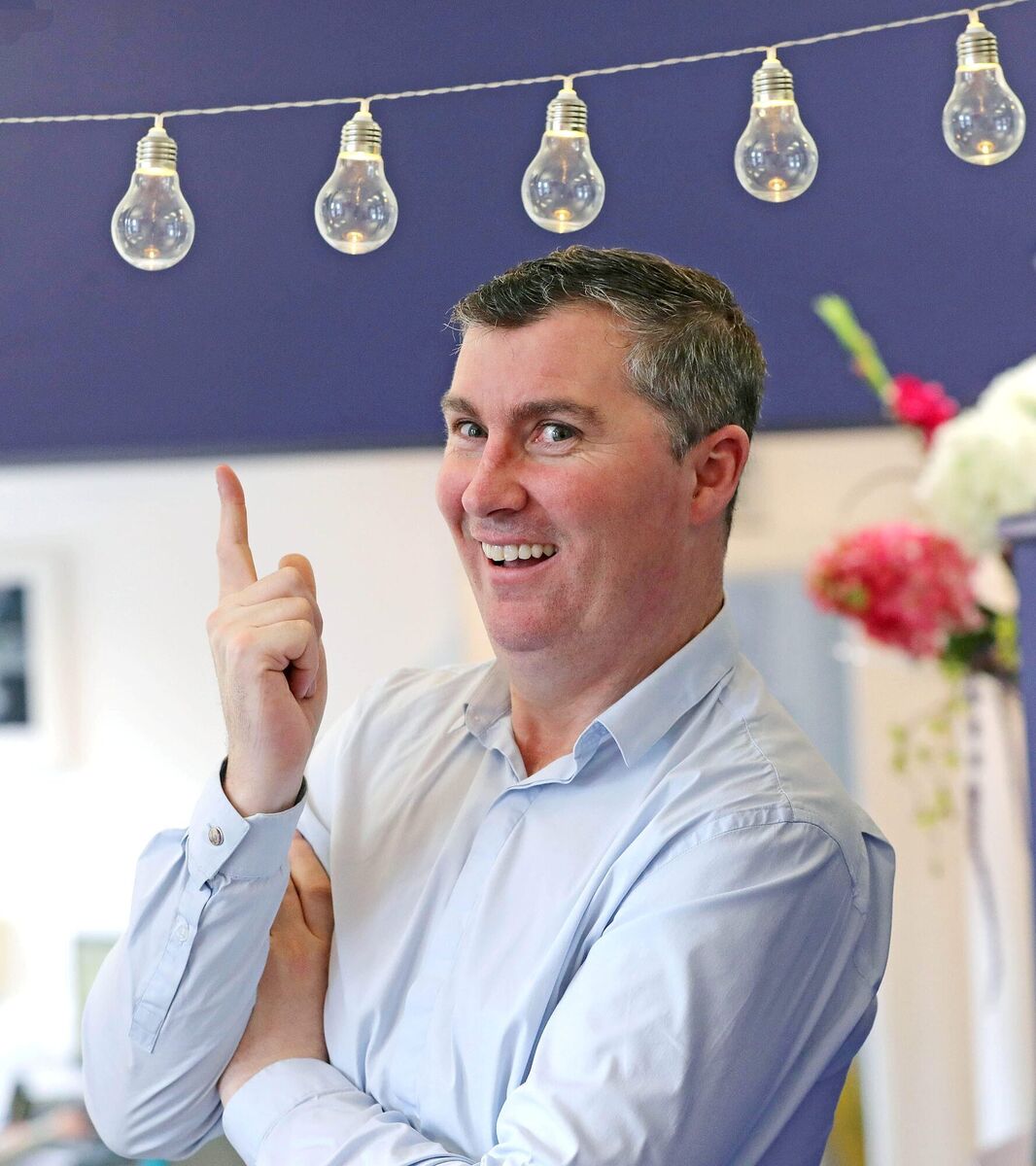How to save money effortlessly by switching energy suppliers

We appear to be lazy-minded when it comes to some of the most effortless ways of saving money, and this includes the ridiculously simple process of shopping online for a better energy deal. Indifferent, financially sloppy, suspicious of change? This is no anecdote. Recent research from the Commission for Regulation of Utilities (CRU) revealed that the number of electricity switchers during April was down 25% on the same month last year ( 17,843 from 23,882) , and the number of gas switchers was down 38% ( 6,141 from 9,921) .
This is a seven-year low in customers reviewing their deals. Did we have too much to do during lock-down, juicing up the technology, faces pressed on the tank window like sad, listless little geckos?
We’re staring into the shimmering pool of our phones, tablets and PCs for hours on any day. Still, this curious public inertia followed a decline in switching noted by the CRU right through 2019, when our gas and electricity prices were hovering 7% above the European average. Gas rate switches were down 9.1% on 2018, while electricity provider switches fell 2.5%.
With the carbon tax in play politically — even in a healthy, fluctuating market, energy prices are not likely to go down. This year the PSO levy will increase from €38.68 to €88.80 per year taking it to €6.52 per month (up 123%). Electric Ireland raised its unit price by 3.4% last month.
A quick call to a supplier followed by a few deft online keystrokes to explore what the market had on offer elsewhere, could have saved as much as €726 on electricity, €494 on gas and €1,343 on dual fuel in discount products over four years, compared to a customer doing nothing at all in the same period. Switching to better dual fuel bundles averaged out at savings of €401 last year.
Even more inexplicable, are the numbers of people who got a clue, challenged or changed their supplier for a better product, saved money, bagged credit, bragged to their friends, and then 12 months later just let their deal die at the end of the contract. If you just ride out 12 months, dither, procrastinate and then outright ignore the Ebills dropping quietly into your inbox, your introductory savings on power and gas generally revert to the standard (and more expensive) tariffs. According to the CRU, 50% of switchers are back-sliding.
You don’t have a meaningful "relationship" with your utility provider. It’s not the local green-grocer in 1955. The soft-focus advertising dream-scape, messages riding on violins and bodhrans, bleating on about caring for you, the customer? Sorry, you are not on the CEO’s Christmas card list. Loyalty is a two-way affair that should be expressed in consistent savings to you and yours.
Contact your current supplier directly about its new, discounted offers and (more comprehensively) look up the latest deals from all 13 providers singing and dancing for your attention in the energy market-place. There are three CRU approved price comparison websites that also act as switching portals - switcher.ie, powertoswitch.ie, and bonkers.ie. Focus your affections there. I would add — see what efforts the potential provider makes to ensure a sustainable product too — the percentage of its power produced by wind, for example, bio-gas from industrial and agricultural waste and so on.
Switching providers or packages is not playing the stock market. Sometimes, changing your product before the contracted deal is up for a better deal, and taking a small penalty, is still worth doing. Price comparison/switcher services take just about all the brain-work out of the process, handling a range of utilities and other services like broadband, phone, TV services and even mortgages. There are small differences in the interfaces you will use to key in your usage details to the search engine, but that’s it. They will all prioritise the best deal choices whether you are on rural Nightrate, micro-generate, or prefer to prepay your power.

Describing its new service as “a virtual PA for our Energy Bills”, Cork startup WeSwitchU takes the process of switching product one more bespoke and bless-ed step. CEO and c hartered accountant Brendan Halpin formerly worked in the renewable energy sector. He realised a new switching service, providing customers with a seamless, and completely free ongoing 12-month refresh to the best unit prices, packages and sign-up rewards the highly competitive utilities market has to offer.
“ If we want people to engage with the market (13 residential energy providers in total) and save money on their energy bills, we need to address the process barriers that discourage people from switching. Once you sign up to WeSwitchU, the only time you need to engage with the service is to give us permission to proceed with a switch after we’ve found the best deal for you.”
With 1500 customers enjoying an average saving of €550 (early August figures), Brendan explains: “After sign-up, our service does everything else — the research, your usage analysis, the shopping around and new provider switch. We guarantee that you will get the best available energy deal tailored for your unique usage profile every year.” weswitchu.ie
Next up is a baffling area of time-of-use tariffs (ToU). The roadblocks in making a change in the opinion of Irish people questioned in surveys is often ‘complexity’ - understanding the positives of a new product, the unknowns of moving to a new supplier, or the downright bother of going through the sign-up process. Let me preface this by saying I know some readers consider a smart power meter with the same aversion as a chip under the skin. A monitoring conduit feeding information back to a government-supported entity? Orwellian level over-reach?
With the installation of smart meters nationwide (due to conclude in 2024), finessing our charges over the 24-hour period between low, standard and high peaks, just make sense. How and ever, research released in early spring by the Behavioral Research Unit of The Economic Social Research Institute ( ESRI) is startling. It shows that the majority of Irish utility customers questioned through an exploratory study appear resistant to more than a simple day time/night time tariff.
The smart meter is capable of synergizing far more complex daily and calendared ToU tariffs aimed at both cutting our national energy usage (and following that carbon emissions) and saving us money. Look up Neil Michael’s superb article here to explore the full results of our smart meter transition tensions, https://www.irishexaminer.com/news/arid-30985817.html
When standard daytime domestic unit price and NightSaver choices are phased out sometime in the next five years — ToU tariffs are permitted to be included in the packages on offer from suppliers. So, ToU will be embedded in the deals. By using more standard and off-peak power and (potentially) even planning the days of the week we say — run our major appliances, we should save money.
ToU will be sold to us as consumers having more control, not less, but it will mean a keen awareness - engaging with, and potentially altering when we clock up that electricity. Still, how far could tariff tailoring go? Will Christmas Day kWs or the hours during the All Ireland Final be pricier? For some of us, just being bossed around by the smart meter? Well, it’s all a bit of a shock.





